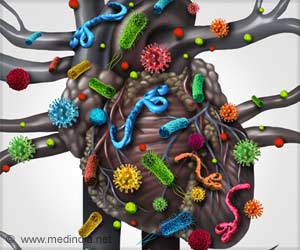Protein-rich foods such as meats, dairy, nuts, and soy contain high levels of sulfur amino acids. Therefore, eating a low-protein diet or diets restricting sulfur amino acids may lower the risk of developing heart disease.
- Fight heart disease by eating a low-protein diet
- Protein-rich foods such as meats, dairy, nuts, and soy contain high amounts of sulfur amino acids
- Diets restricting sulfur amino acids may help reduce the risk of heart disease
Read More..
"For decades it has been understood that diets restricting sulfur amino acids were beneficial for longevity in animals," said John Richie, a professor of public health sciences at Penn State College of Medicine. "This study provides the first epidemiologic evidence that excessive dietary intake of sulfur amino acids may be related to chronic disease outcomes in humans."
Richie led a team that examined the diets and blood biomarkers of more than 11,000 participants from a national study and found that participants who ate foods containing fewer sulfur amino acids tended to have a decreased risk for cardiometabolic disease based on their bloodwork.
The team evaluated data from the Third National Examination and Nutritional Health Survey. They compiled a composite cardiometabolic disease risk score based on the levels of certain biomarkers in participants' blood after a 10-16 hour fast including cholesterol, triglycerides, glucose and insulin.
"These biomarkers are indicative of an individual's risk for disease, just as high cholesterol levels are a risk factor for cardiovascular disease," Richie said. "Many of these levels can be impacted by a person's longer-term dietary habits leading up to the test."
For a person weighing 132 pounds, food choices for a day that meet the requirement might include a medium slice of bread, a half an avocado, an egg, a half cup of raw cabbage, six cherry tomatoes, two ounces of chicken breast, a cup of brown rice, three quarters of a cup of zucchini, three tablespoons of butter, a cup of spinach, a medium apple, an eight inch diameter pizza and a tablespoon of almonds. Nutritionists collected information about participants' diets by doing in-person 24-hour recalls. Nutrient intakes were then calculated using the U.S. Department of Agriculture Survey Nutrient Database.
"Many people in the United States consume a diet rich in meat and dairy products and the estimated average requirement is only expected to meet the needs of half of healthy individuals," Gao said. "Therefore, it is not surprising that many are surpassing the average requirement when considering these foods contain higher amounts of sulfur amino acids."
The research team found that higher sulfur amino acid intake was associated with a higher composite cardiometabolic risk score after accounting for potential confounders like age, sex and history of diabetes and hypertension. They also found that high sulfur amino acid intake was associated with every type of food except grains, vegetables and fruit.
"Meats and other high-protein foods are generally higher in sulfur amino acid content," said Zhen Dong, lead author on the study and College of Medicine graduate. "People who eat lots of plant-based products like fruits and vegetables will consume lower amounts of sulfur amino acids. These results support some of the beneficial health effects observed in those who eat vegan or other plant-based diets."
Dong said that while this study only evaluated dietary intake and cardiometabolic disease risk factors at one point in time, the association between increased sulfur amino acid intake and risk for cardiometabolic disease was strong. She said the data supports the formation of a prospective, longitudinal study evaluating sulfur amino acid intake and health outcomes over time.
"Here we saw an observed association between certain dietary habits and higher levels of blood biomarkers that put a person at risk for cardiometabolic diseases," Richie said. "A longitudinal study would allow us to analyze whether people who eat a certain way do end up developing the diseases these biomarkers indicate a risk for."
Reference:
- Lower protein diet may lessen risk for cardiovascular disease - (https://news.psu.edu/story/606065/2020/02/03/research/lower-protein-diet-may-lessen-risk-cardiovascular-disease)
Source-Eurekalert
















